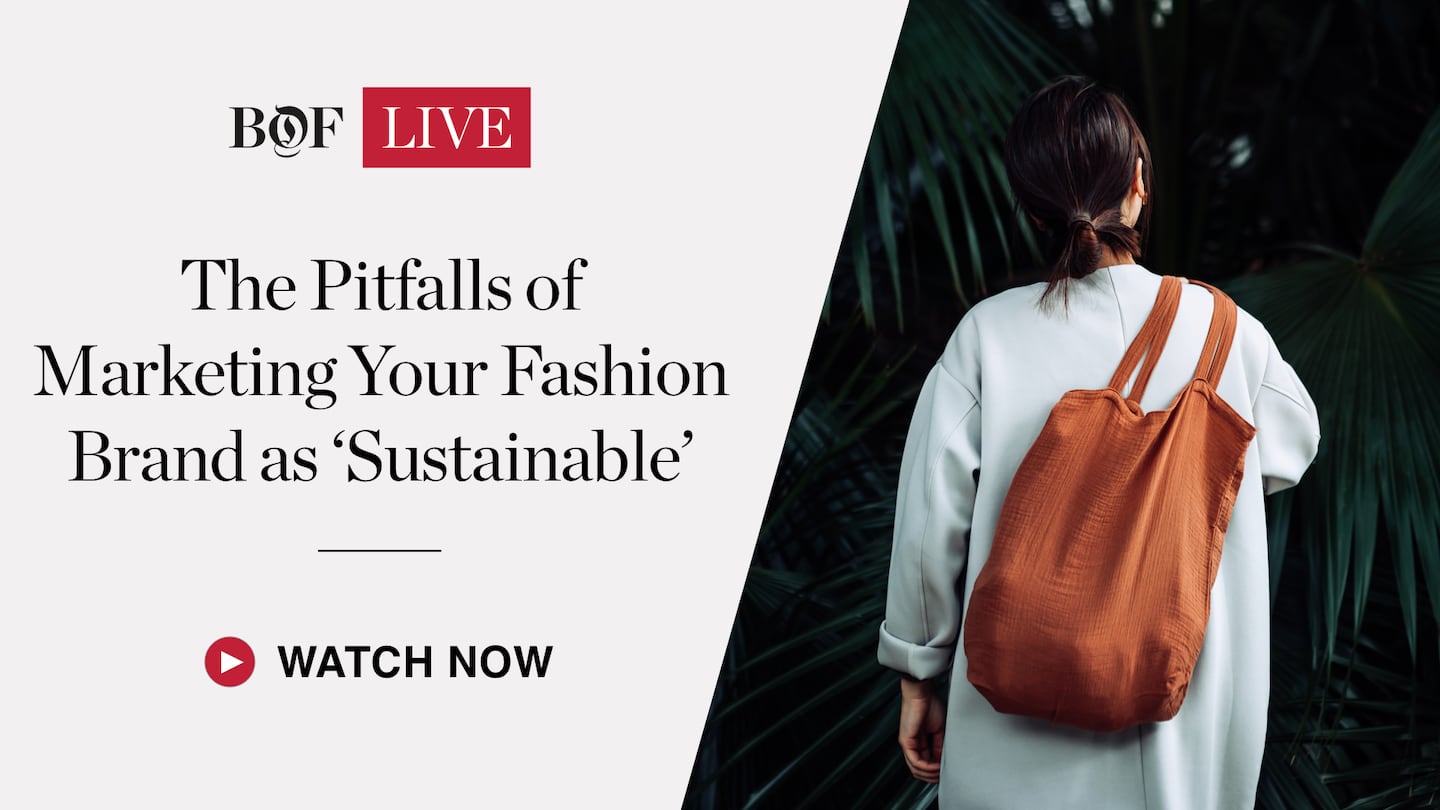
The Business of Fashion
Agenda-setting intelligence, analysis and advice for the global fashion community.

Agenda-setting intelligence, analysis and advice for the global fashion community.

This #BoFLIVE event was based on the ‘The Trouble with ‘Sustainable’ Fashion’ article. Click here to read our full analysis.
Sustainability has become fashion’s favourite buzzword. But as more and more brands tout eco-conscious collections and socially responsible supply chains, consumers are becoming more critical and their expectations are growing. Brands talking about sustainability can be powerful, but they must also be careful to avoid accusations of greenwashing.
In the latest #BoFLive, London editor Sarah Kent speaks with senior correspondent Chantal Fernandez, Maxine Bédat, founder and director of sustainability think tank New Standard Institute, and writer, stylist and consultant Aja Barber about the importance of honest and transparent communication when talking about sustainable business practices.
Ultimately though, fashion can’t market its way to more sustainable operations. “We have to have that deeper conversation as a society and culture and ask what are businesses for?” said Bédat. “What purpose do they serve and where do we want to go as a society and what values do we want to hold?”
ADVERTISEMENT
Related Articles:
How to Avoid the Greenwashing Trap
When ‘Mea Culpa’ Is the Best Marketing
Fashion’s Greenwashing Problem Begins with Bad Data
To participate in #BoFLive, BoF’s digital events series offering insight, advice and inspiration, visit our calendar where you can find details of upcoming digital events.
Overconsumption and fast fashion have become easy targets for brands flexing their climate-friendly attributes. Consumers may agree with the message — but take issue with a self-righteous tone.
Traces of cotton from Xinjiang were found in nearly a fifth of samples from American and global retailers, highlighting the challenges of complying with a US law aimed at blocking imports that could be linked to forced labour in China.
The fashion industry continues to advance voluntary and unlikely solutions to its plastic problem. Only higher prices will flip the script, writes Kenneth P. Pucker.
The outerwear company is set to start selling wetsuits made in part by harvesting materials from old ones.